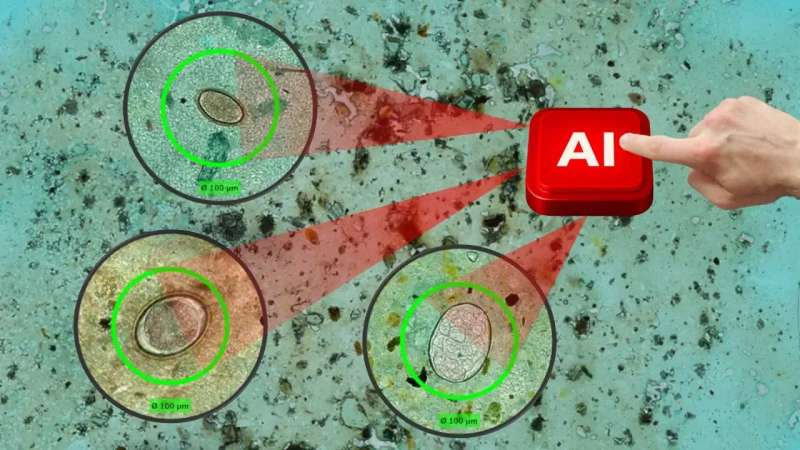Soil-transmitted helminths—primarily roundworm, whipworm and hookworm—are among the most common neglected tropical diseases, affecting over 600 million people globally. These infections are especially harmful to children in low-resource settings, where they can cause malnutrition, anemia and hinder physical and mental development. Accurate diagnostics are important to guide treatment efforts.
In the study, researchers analyzed 704 stool samples using three methods: manual microscopy, fully autonomous AI, and expert-verified AI. The expert-verified AI approach, where local experts confirm AI findings in under a minute, proved to be the most accurate. It detected 92% of hookworm infections, 94% of whipworm, and 100% of roundworm—significantly higher than manual microscopy, which had much lower detection rates, especially for light infections.

